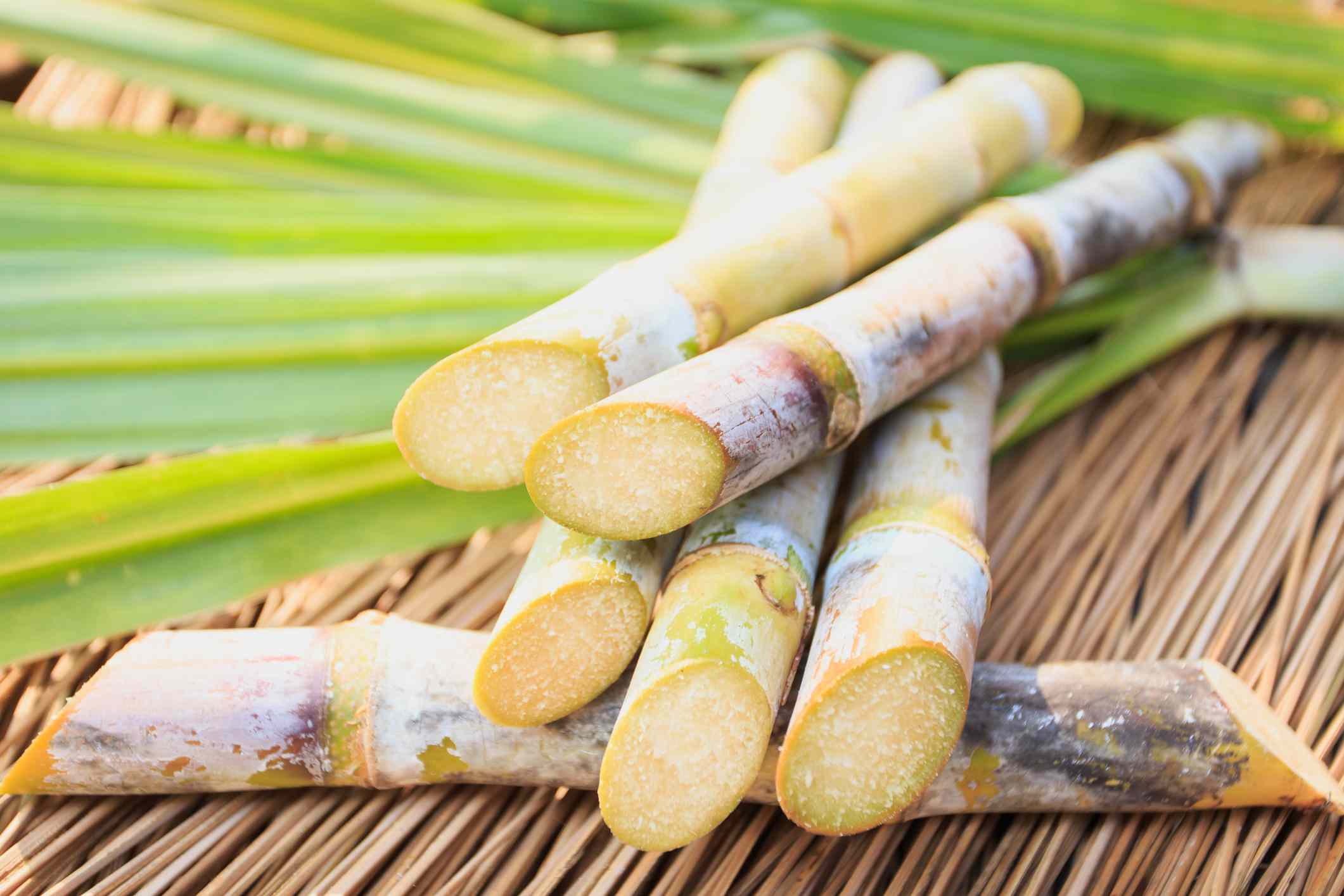Cane Sugar Processing: Key Technologies for Superior Sugar Manufacturing
Cane Sugar Processing: Key Technologies for Superior Sugar Manufacturing
Blog Article
An In-depth Introduction of the Health and Economic Ramifications of Cane Sugar Processing on Regional Communities
Walking stick sugar handling plays an essential role in shaping the economic landscape of local areas, using employment possibilities and boosting supplementary markets. The health ramifications associated with high sugar intake can not be forgotten, as they contribute to climbing prices of weight problems and diabetic issues.
Economic Advantages of Cane Sugar Handling
Cane sugar handling provides significant financial advantages that expand past the prompt farming industry. The growing and processing of sugarcane create many task opportunities, from farming to production and circulation. This employment generation not only supports local economic climates but additionally cultivates area growth by providing stable revenue resources for families.
Moreover, the sugar market promotes ancillary organizations, including transport, devices supply, and packaging solutions (Cane Sugar Processing). As these industries grow, they add to a much more robust economic framework, boosting overall community strength. The export potential of refined walking cane sugar further enhances financial benefits, positioning areas as competitive players in international markets
Financial investment in contemporary processing centers can cause raised performance and efficiency, consequently minimizing waste and enhancing source usage. This shift not only profits the local economic climate yet also sustains sustainability initiatives by lessening environmental effects.
Additionally, the income created from walking stick sugar handling can be reinvested in neighborhood framework, education and learning, and healthcare, promoting all natural neighborhood development. Generally, the economic advantages of cane sugar handling are multifaceted, giving a structure for withstanding prosperity in agricultural regions.
Health Threats Linked With Sugar Usage
Extreme sugar usage presents considerable wellness dangers that require severe attention. High consumption of included sugars, especially from processed beverages and foods, has actually been connected to numerous health and wellness problems. One of the most important concerns is excessive weight, as sweet diet plans add to a boosted calorie intake without giving crucial nutrients. This unwanted can result in metabolic disorders, including kind 2 diabetic issues, which has actually become significantly prevalent in both adults and youngsters - Cane Sugar Processing.
Additionally, high sugar intake is related to heart disease. Elevated blood glucose levels can result in insulin resistance, a precursor to numerous heart-related concerns. Furthermore, sugar can have harmful results on dental health, causing dental caries and gum condition, as germs in the mouth grow on sugar, creating acids that deteriorate tooth enamel.
In addition, emerging study suggests a potential link in between high sugar usage and psychological health disorders, such as clinical depression and stress and anxiety. As areas come to grips with these health and wellness risks, it comes to be important to advertise understanding and motivate healthier dietary selections. Dealing with sugar intake is vital not only for specific wellness yet likewise for the overall well-being of local areas, highlighting the requirement for extensive public health and wellness strategies.
Ecological Impacts of Sugar Manufacturing
Regularly neglected in discussions about sugar's ramifications is the significant environmental effect of sugar manufacturing. The cultivation of sugarcane commonly requires comprehensive land usage, leading to deforestation, loss of biodiversity, and interruption of neighborhood communities. The conversion of forests and marshes into sugar haciendas can lead to habitat devastation, threatening numerous varieties and modifying ecological balance.
Furthermore, sugar manufacturing is resource-intensive, consuming considerable quantities of water for irrigation. This can lead to deficiency of regional water resources, negatively influencing both agricultural techniques and area accessibility to clean water. Furthermore, using chemical fertilizers and pesticides in sugarcane farming can add to soil destruction and water pollution, as runoff from these chemicals enters close-by rivers and lakes, influencing see it here aquatic life and human health.
The ecological footprint includes the processing stage, where energy consumption and waste generation additional worsen eco-friendly issues. Air air pollution from shedding sugarcane areas, together with greenhouse gas emissions, add to environment adjustment. Therefore, the environmental implications of sugar manufacturing warrant significant factor to consider, prompting stakeholders to take on more lasting methods to reduce these negative impacts on Clicking Here local ecosystems and communities.
Job Development and Area Development
The ecological obstacles postured by sugar production are commonly counteracted by its potential for economic benefits, specifically in work creation and community advancement. The walking stick sugar industry functions as a substantial source of work in many rural areas, offering jobs across various skill degrees, from farming labor to handling and circulation roles. This employment not just supports specific households but also adds to the overall economic vigor of local neighborhoods.
In addition, the establishment of sugar processing centers promotes secondary companies, such as transport solutions, tools supply, and upkeep suppliers. As these companies prosper, they create added tasks and boost regional economic situations. The earnings created from the sugar industry additionally leads to raised tax earnings, which can be reinvested into neighborhood services such as infrastructure, health care, and education and learning advancement.
Additionally, the sugar sector usually participates in neighborhood advancement efforts, such as supporting regional colleges and wellness programs, therefore boosting the high quality of life for locals. By promoting strong community ties and promoting financial development, the cane sugar handling industry plays a crucial function in uplifting neighborhood populations, making it a crucial part of lasting development methods in sugar-producing areas.
Harmonizing Health and Economic Development
In browsing the complexities of walking cane sugar handling, an essential obstacle exists in balancing health and wellness considerations with economic growth. The sugar industry dramatically adds to regional economic climates by creating work, promoting relevant sectors, and increasing tax profits. Nonetheless, the wellness effects connected with excessive sugar intake can cause persistent diseases such as obesity, diabetes, and cardiovascular concerns, which can concern public wellness systems and reduce labor force efficiency.

Moreover, regulative structures can play a critical function in guiding sector practices towards even more health-conscious and lasting approaches. By cultivating cooperation between federal government bodies, wellness organizations, and the sugar market, communities can browse the duality of wellness and economic growth, making certain that the advantages of walking stick sugar handling are equitably shared while focusing on public health and wellness.
Final Thought
In verdict, the processing of cane sugar presents both substantial financial benefits and notable health and wellness risks for local communities. While it promotes work creation and stimulates regional advancement, the associated health and wellness worries, particularly regarding excessive weight and diabetic issues, require a cautious balancing act. By promoting liable consumption and investing in community education and learning and sustainable methods, it is possible to make the most of financial advantages while minimizing unfavorable health impacts, therefore making sure a much healthier future for regional populations.
Additionally, sugar can have detrimental results on dental wellness, resulting in tooth cavities and gum tissue illness, as microorganisms in the mouth prosper on sugar, producing acids that deteriorate tooth enamel.
Resolving sugar usage is crucial not only for individual health but also for the general wellness of local neighborhoods, emphasizing the demand for comprehensive public wellness strategies.
Often neglected in discussions regarding sugar's ramifications is the considerable environmental effect of sugar manufacturing. The health and wellness effects associated with too much sugar consumption can lead to chronic diseases such as excessive weight, diabetic issues, and cardio concerns, which can concern public wellness systems and decrease workforce productivity.

Report this page